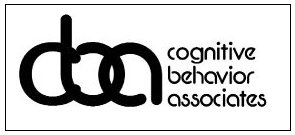Are you struggling to fall or stay asleep at night? If so, you likely feel tired throughout the day. Insomnia can become a huge disruption to your quality of life, eventually propelling you to seek out treatment options. If so, then cognitive behavioral therapy for insomnia (CBT-I) might be right for you! But how does cognitive behavioral therapy improve your sleep? In this article, we will dive into CBT-I and how it can lead you back to soundly sleeping at night.
What Is Cognitive Behavioral Therapy?
Cognitive behavioral therapy (CBT) is a specific kind of talk therapy that emphasizes the relationships between our thoughts (cognition), emotions, and actions (behaviors). Its core principle is that the way we think affects what we feel. In turn, how we feel will influence how we act and behave. If people can first identify and then alter their maladaptive thought patterns, it can lead them to respond and act in healthier ways. CBT is often used to treat anxiety, depression, PTSD, insomnia, and more! Backed by decades of research, CBT is praised for being structured and goal-oriented.
So, How Does CBT-I Improve Sleep?
CBT-I uses the same principles of cognitive behavioral therapy but applies them directly to sleep. Therapists look to understand any challenging mental habits you have surrounding sleep and how they may affect your sleep-related behaviors. For example, individuals with insomnia tend to worry constantly about whether they will be able to sleep or how tired they will be if they cannot sleep. As a result, they may constantly watch the clock, continue to stress themselves out, and be unable to rest.
The goal of CBT-I is to break this pattern by introducing better thoughts about sleep and changing your bedtime habits. By working out the connections between your mind, body, and sleep routine, you can change your relationship with sleep for good!
Common CBT Techniques for Sleep
A variety of practical techniques can work to change your mental patterns and behaviors associated with sleep. Here are some of them below:
- Stimulus control: Train your brain to associate with sleep by not scrolling through your phone or watching TV.
- Sleep restriction therapy: Limiting the amount of time you actually spend in bed can help increase your sleep drive and reset the schedule.
- Relaxation training: This includes deep breathing, guided imagery for calming your mind and body, and possibly progressive muscle relaxation. These practices can help reduce nighttime anxiety and mental barriers to falling asleep.
- Journaling: Sometimes therapists will recommend keeping a journal to track your sleep patterns and thoughts. Through this, you may be able to uncover hidden habits or stressors that you did not realize you had.
Of course, there are more tools, and the exact combination of tools used for each patient can vary depending on their situation. The goal of all of these tools is to transform any negative thoughts and behaviors to instead be productive and bring good sleep.
Why CBT Is So Effective
The reason why CBT-I can be so effective is because of how it can reframe your thoughts and improve your behaviors. By doing this, CBT teaches patients how to respond to stress and worry. The positive changes replace the negative and become the new mental and physical habits by which you operate. This therapy addresses the root cause of your insomnia instead of just trying to treat your symptoms with medication. For this reason, your new and improved sleep thoughts and habits are set up to be long-lasting, hopefully staying with you and bringing great sleep for years to come.
In fact, research shows that CBT-I is just as, or possibly even more, effective than prescription sleeping pills in the long run. CBT brings all those benefits, and that too without the potential risks of dependence and side effects from medication!
Get Started with CBT-I
Cognitive behavioral therapy for sleep or insomnia can be very useful and is done with a licensed therapist. Regardless of the severity of sleep symptoms you display, how long you have had them for, or whether you have underlying conditions, CBT-I may work for you, too. Be sure that you feel comfortable with your therapist and their approach to addressing your struggles with sleep. If you are looking to start CBT for insomnia, meet one of our qualified and compassionate therapists today!

